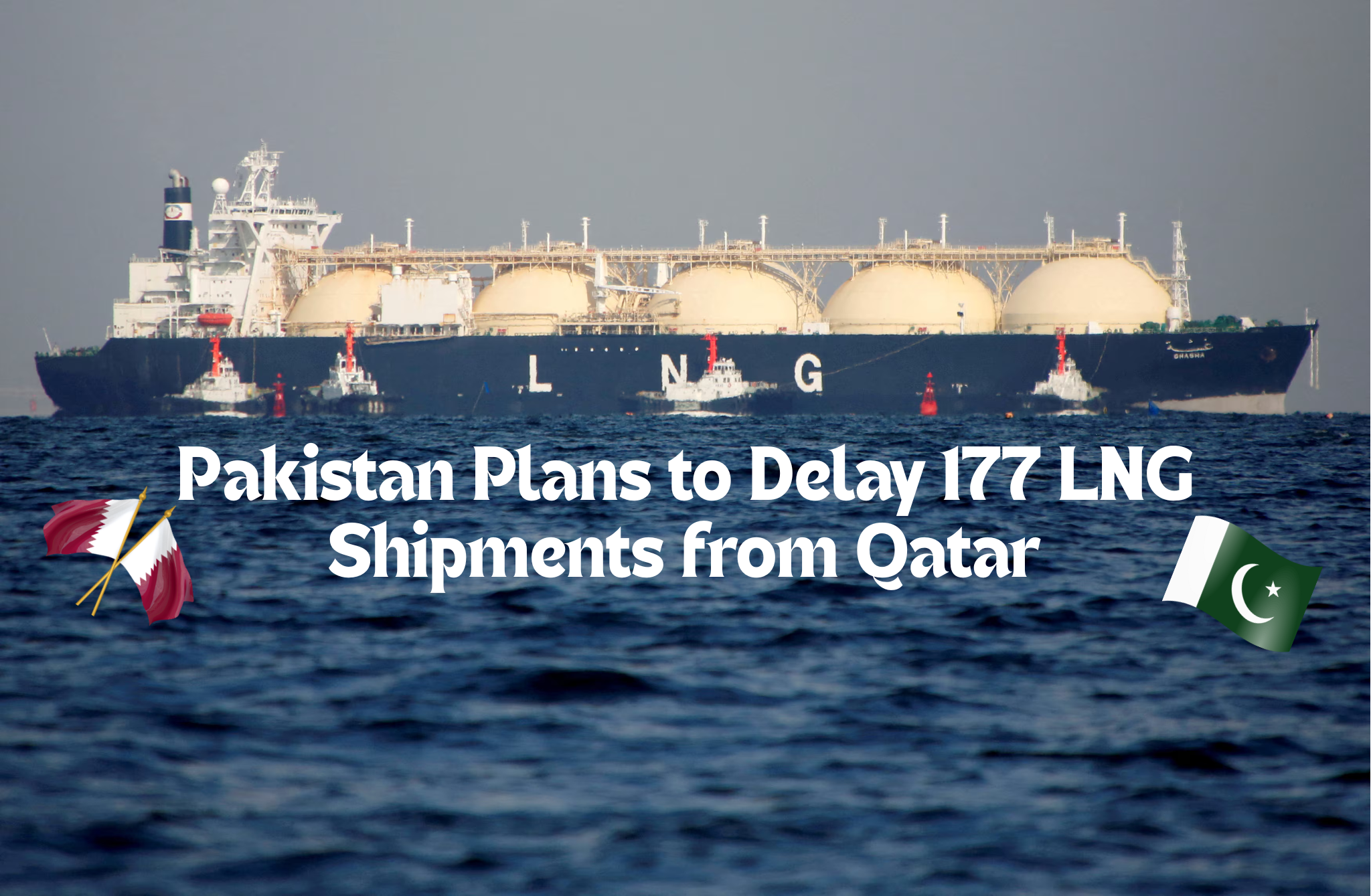
Pakistan Plans to Delay 177 LNG Shipments from Qatar
Pakistan plans to delay 177 LNG shipments from Qatar. Pakistan is preparing to request Qatar to delay the delivery of 177 liquefied natural gas (LNG) shipments over the next five years. This move comes after a big drop in domestic gas consumption, which has left the country with more gas than it currently needs.
The deferred shipments, worth around $5.6 billion, are expected to be received later in 2031-32. By then, one of Pakistan’s two LNG supply contracts with Qatar will have expired, making it easier to adjust deliveries.
Why Pakistan Wants the Delay?
According to reports, gas demand in Pakistan has fallen sharply in both the power sector and the export industry. This decline means that from October 2025 to 2030, Pakistan will have 177 extra shipments that it cannot use. Each shipment is valued at nearly Rs. 9 billion.
Currently, Pakistan imports 120 LNG cargoes every year — 108 from Qatar and 12 from Italy’s ENI. These long-term contracts are based on a “take-or-pay” system, which means Pakistan must pay for the cargoes whether or not it uses them.
The problem is that many of the power plants, especially in Punjab, have not been using LNG as planned. This has left the government struggling to manage the extra supply.
Proposed Solution with Qatar
Pakistan’s delegation, led by Federal Minister for Petroleum Ali Pervaiz Malik, along with senior officials, is traveling to Qatar to discuss this issue. The proposal includes:
1. Delaying 177 shipments to 2031-32.
2. Asking Qatar to allow two shipments per month in 2026 to be sold in the international market instead of being sent to Pakistan.
Officials explained that waiting until 2026 to renegotiate under the “price opening clause” could be risky, as the surplus will only increase. That’s why Pakistan wants to settle the matter earlier.
Financial and Contractual Challenges
Pakistan’s agreement with Qatar requires nine shipments every month, five priced at 13.37% of Brent crude and four at 10.2%. Unlike the deal with ENI, where Pakistan can resell its cargoes in the market and share profits or losses, the Qatari contract does not give this flexibility.
If Qatar agrees to sell Pakistan’s diverted cargoes in the international market, any loss will be Pakistan’s responsibility, while profits will go to Qatar. This makes the negotiation even more sensitive.
Pressure on Gas Pipelines
The LNG surplus has also caused technical problems. Pakistan’s main RLNG pipeline is running at 5.17bcf pressure, above the safe limit of 5bcf. To avoid damage, the government has shut down local gas wells producing between 270 to 400mmcfd.
Meanwhile, the power sector is consuming only 510mmcfd, far below its contracted 800mmcfd. The export sector has also cut its usage to just 100mmcfd from 350mmcfd because imported gas is too expensive, costing around Rs. 3,500 per MMBtu plus a 5% tax.
Due to this low offtake, the state-owned SNGPL has been forced to reduce local gas supplies to balance the system.
What Lies Ahead?
The Pakistani team has until September 15 to finalize the annual delivery plan for 2026. This plan will determine the schedule for LNG cargo arrivals. Officials believe that if the matter is not resolved quickly, the glut could worsen, especially since five shipments already delayed from 2025 will arrive in 2026.
This situation highlights the challenges Pakistan faces in balancing its energy needs, international contracts, and financial limits. The upcoming talks with Qatar will play a key role in shaping the country’s energy future.









